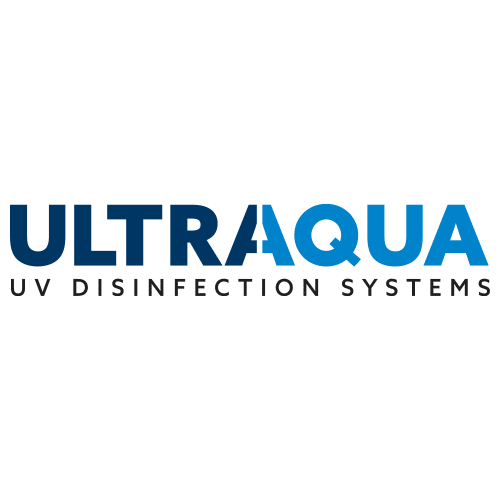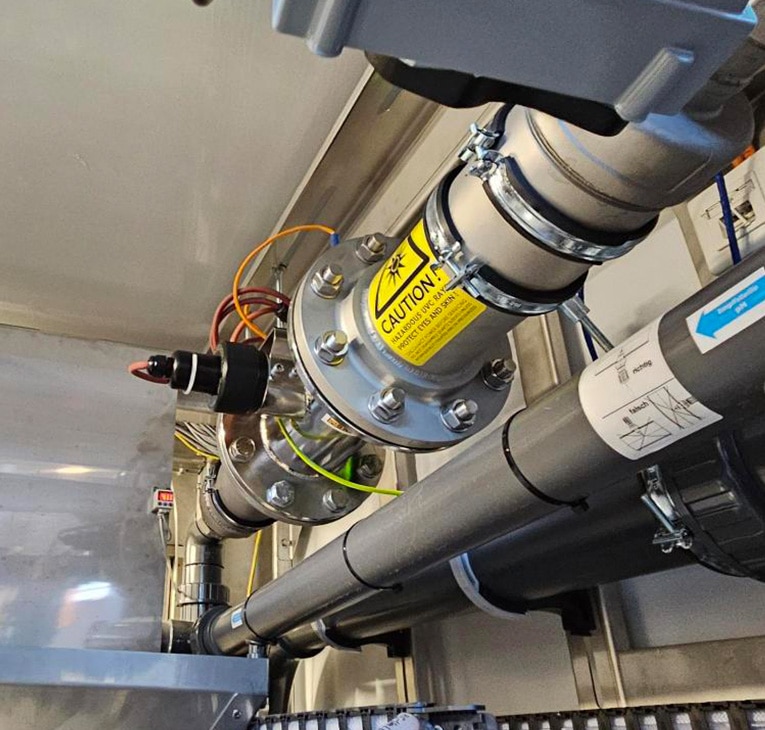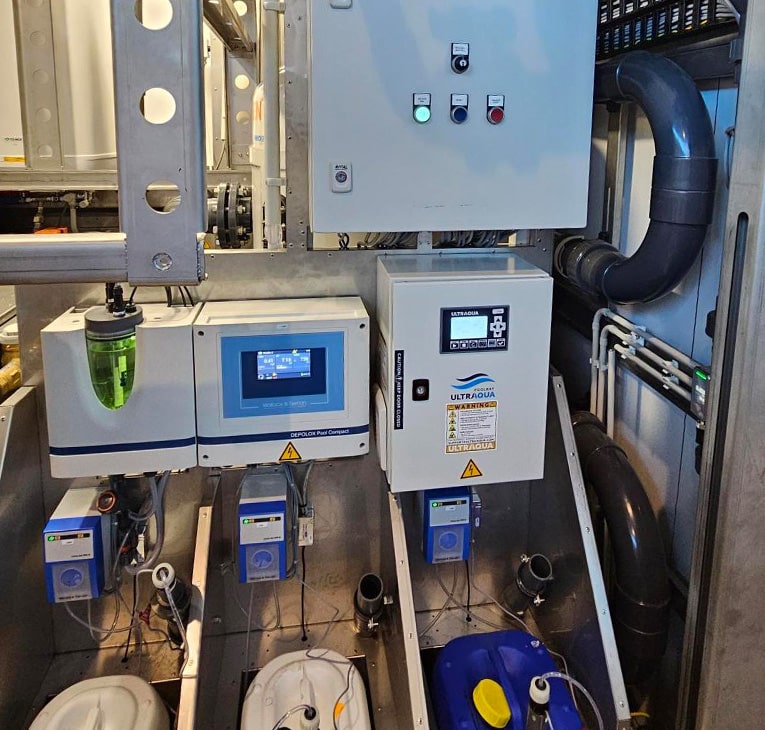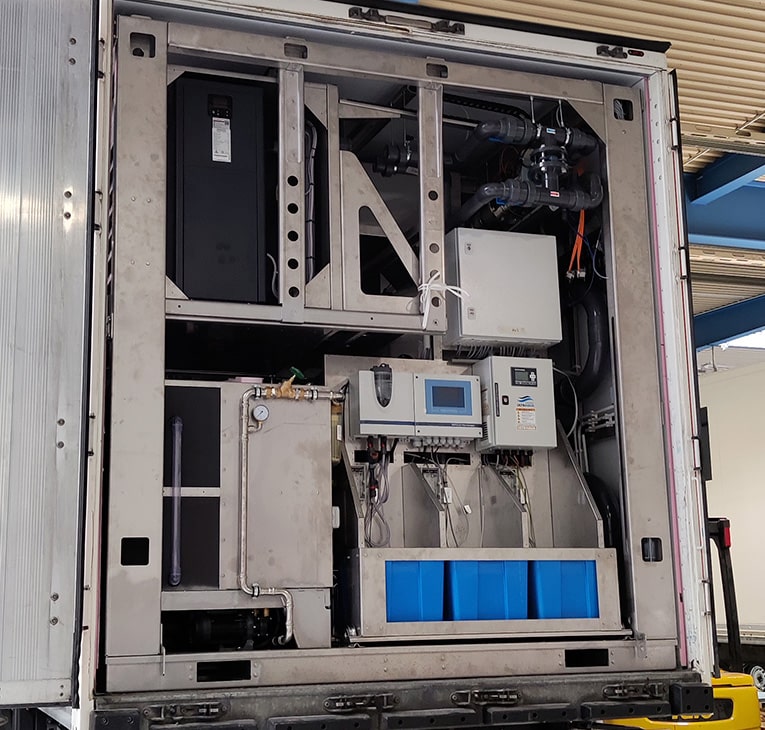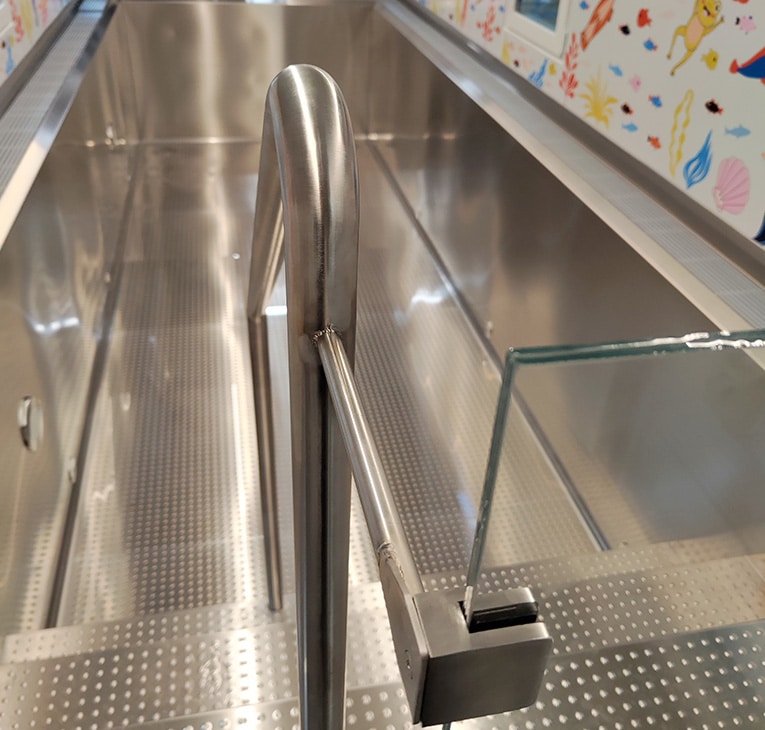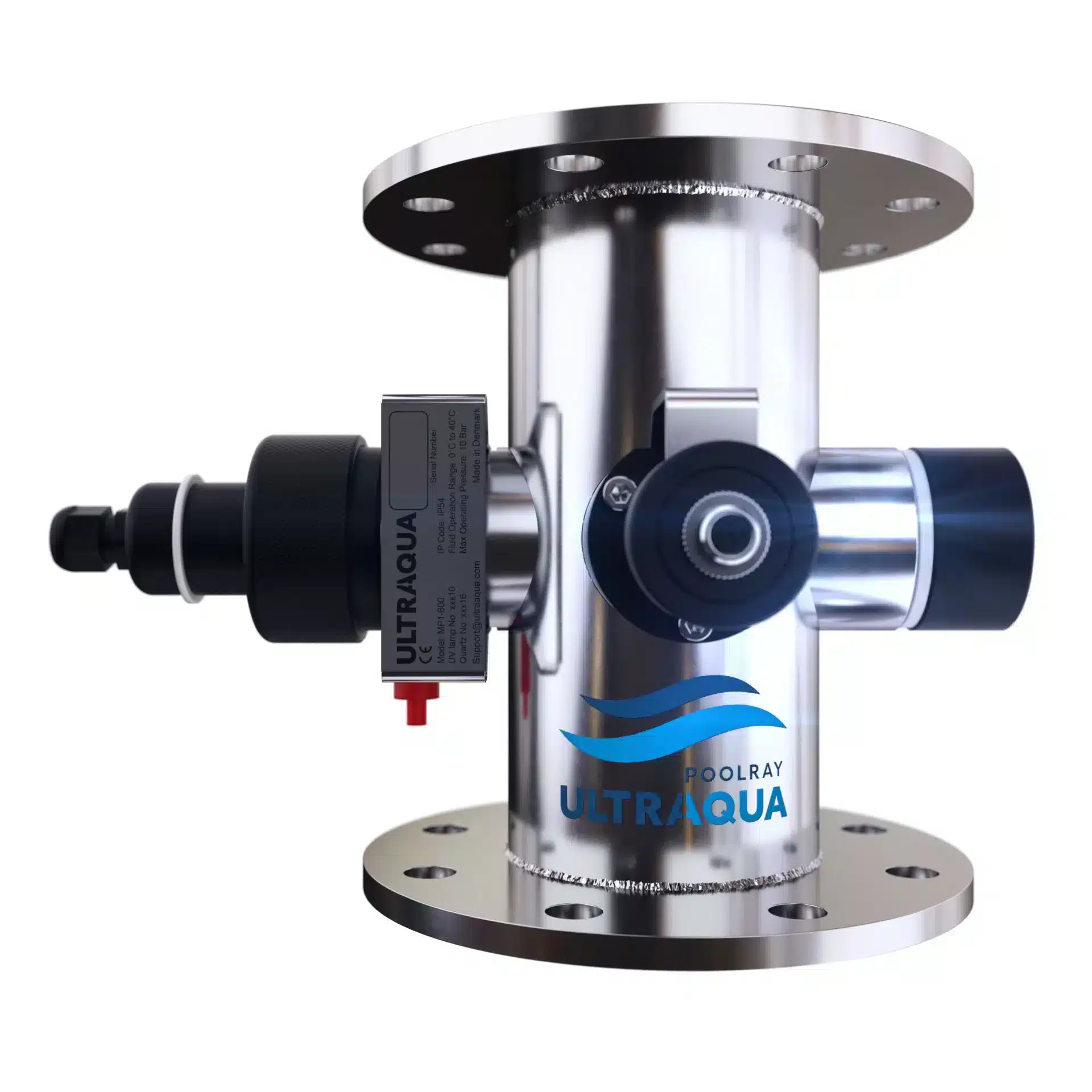ABOUT THE CLIENT
MOBILE SWIMMING POOL CONTAINER IN GERMANY
The Josef Wund Stiftung gGmbH foundation initiated the “Wundine on Wheels” project to address the growing need for accessible swimming facilities across Germany.
The project focuses on providing Learn-to-Swim pools in regions where local access to pools is limited, offering kindergarteners and school-aged children the opportunity to learn essential swimming skills.
To achieve this, the foundation developed an innovative solution: a mobile swimming pool container that can be transported between municipalities, ensuring swimming education reaches children in remote areas.
WHAT THE CLIENT NEEDED
A COMPACT SECONDARY DISINFECTION SYSTEM
To support the goals of Wundine on Wheels, the client required a robust secondary disinfection system that would meet the high public health standards for swimming pools, provide reliable chloramine reduction, and fit within a compact mobile container.
While activated carbon filtration is commonly used in Germany for similar applications, this particular mobile setup presented a key logistical challenge. Movement of the container could disrupt the activated carbon filter, damaging the carbon while forcing costly, time-intensive replacements or reactivation once the container reaches a new destination. Additionally, there is the limited effectiveness of activated carbon filtration in terms of managing chlorine-resistant pathogens.
To overcome these challenges, alternatives had to be explored beyond carbon filtration, which led to focus on UV technology due to the compact footprint, efficiency in chloramine reduction, as well as ease of maintenance.
